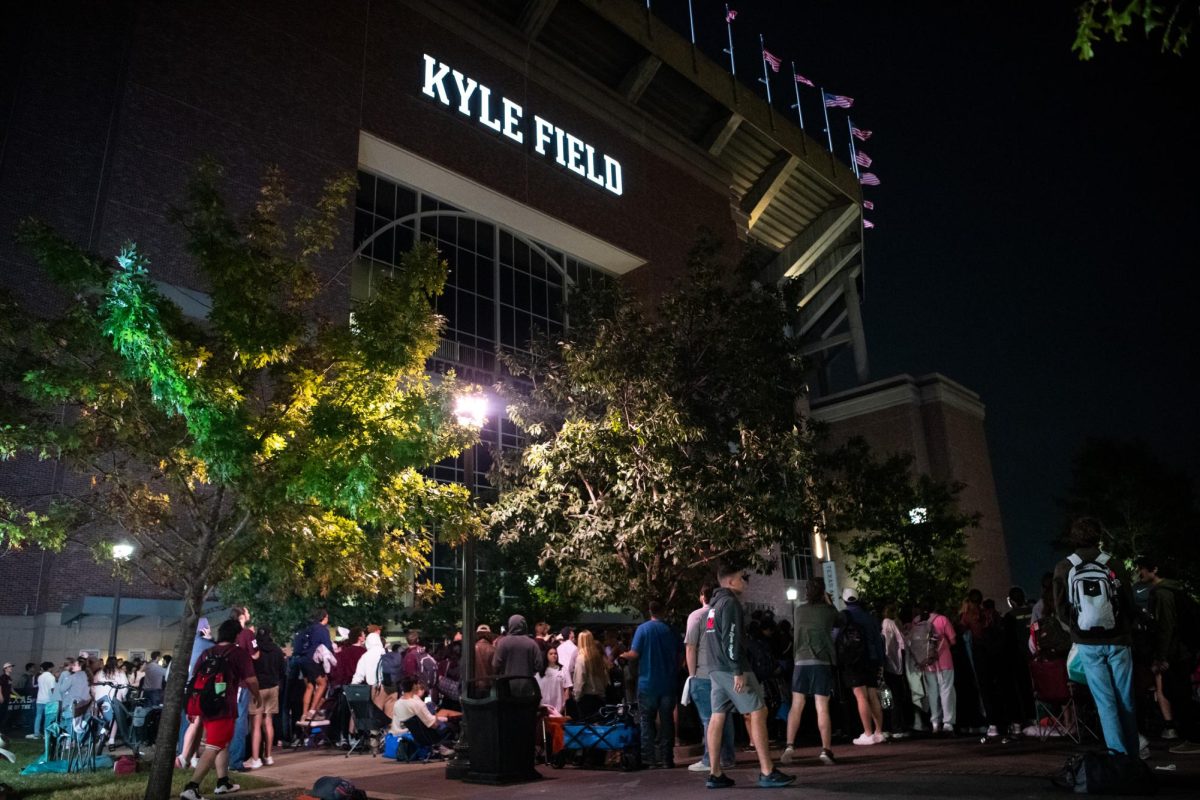While the 84th Texas legislative session does not officially start until January, a bill is in the queue regarding infrastructure in the Texas A&M University System.
State Sen. Kel Seliger filed Senate Bill 150 on Nov. 10, the first day of filing. If passed, the bill could prompt $2.86 billion in spending spread across 64 construction and renovation projects at public institutions of higher education across the state.
Seliger, chairman of the Senate Higher Education Committee, said the most dire projects are outdated buildings and undersized campuses in the A&M system.
“The biggest emergency requirements that we have, the ones that I think really have got to be done, are in the A&M system,” Seliger said. “Specifically A&M Kingsville, A&M Galveston and A&M San Antonio. [Kingsville is] an institution that probably graduates more high school band directors than any other institution in the state, and they’re using a 40 to 50 year old building that is not adequate for what they’re doing now.”
Two College Station projects are also on the bill, including a bio-containment facility and additions to the Texas A&M Health Science Center. Seliger said A&M is uniquely suited for the type of work that goes on in a bio-containment facility and that recent epidemiological scares, like Ebola diagnoses in Dallas, have shown the importance of these kinds of facilities.
“There are very few [bio-containment facilities] in the country, and probably no institution better suited to that mission than Texas A&M,” Seliger said. “And I think the Ebola scare probably focused attention on just how important this thing is and is going to be in the future.”
Holly Shive, public relations manager at the Health Science Center, said the projects listed on the bill relating to the center were part of their legislative appropriations request and were deemed high priority capital infrastructure projects.
“I can tell you the reason that they were identified as high priority is because according to coordinating board space model we, the Texas A&M Health Science Center, are more than 57 percent underbuilt based on education service and research being conducted on our campuses,” Shive said. “Meaning we need more facilities to facilitate what we have going on, so infrastructure needs to be brought up.”
As written, SB 150 would allow public institutions of higher learning to sell $2.86 billion in bonds to fund projects throughout their systems. This bill would allocate $2.86 billion from either the Rainy Day Fund or the General Revenue Fund to pay the principal on the notes. The 11 different Texas higher education systems named in the bill would still have to use tuition and other revenues to cover the interest on bonds sold, Seliger said.
“Where tuition comes in is for the interest involved,” Seliger said. “Universities can go and issue all the bonds they want, but then they’re responsible for the principal and the interest. This particular bill is not about debt, it provides that if this bill passes — and this is not the only one I’m going to do — that the projects be paid for with cash.”
Seliger said he’s more focused on getting the projects in the bill started than in the way in which they’re financed.
“I prefer to do it with cash because I don’t think you incur debt unless you have to, and we will not have to, I don’t believe, so that’s why it’s done this way,” Seliger said.
Seliger said although he normally doesn’t file legislation this early, he made an exception to ensure that there is time for people to familiarize themselves with the institutions and their needs. He said, going forward, it’s up to the possible recipients to garner support.
John Sharp, Texas A&M University System chancellor, said he was pleased the legislature was considering the issue.
“We are pleased that the legislature is considering funding the very real infrastructure needs of higher education institutions and we look forward to working with them during the upcoming session,” Sharp said.
Seliger helped author a similar bill in the last legislative session, SB 16, but a unified version of that bill failed to pass both houses.
New state bill could prompt spending on A&M renovation projects
November 18, 2014
0
Donate to The Battalion
Your donation will support the student journalists of Texas A&M University - College Station. Your contribution will allow us to purchase equipment and cover our annual website hosting costs.
More to Discover








